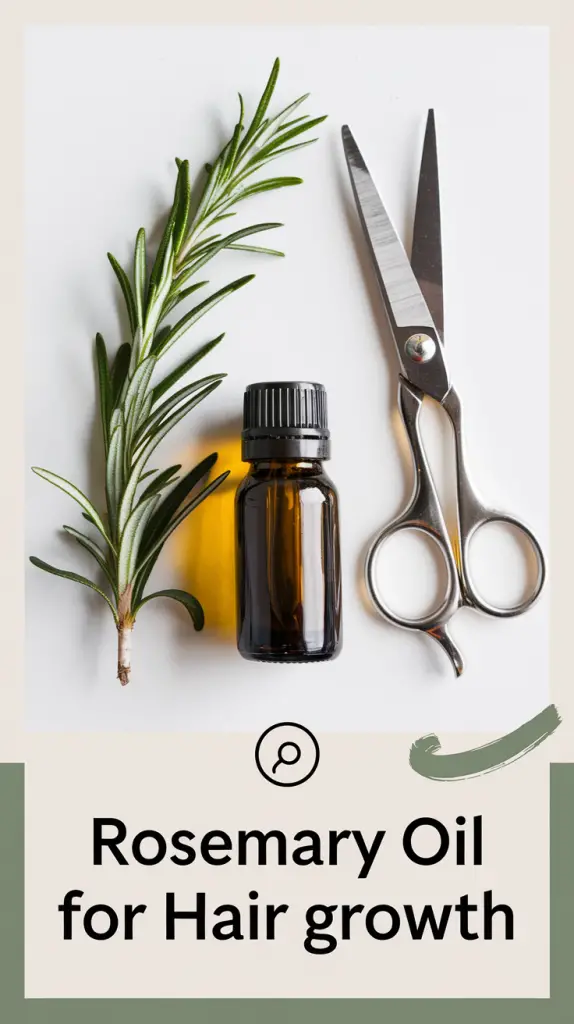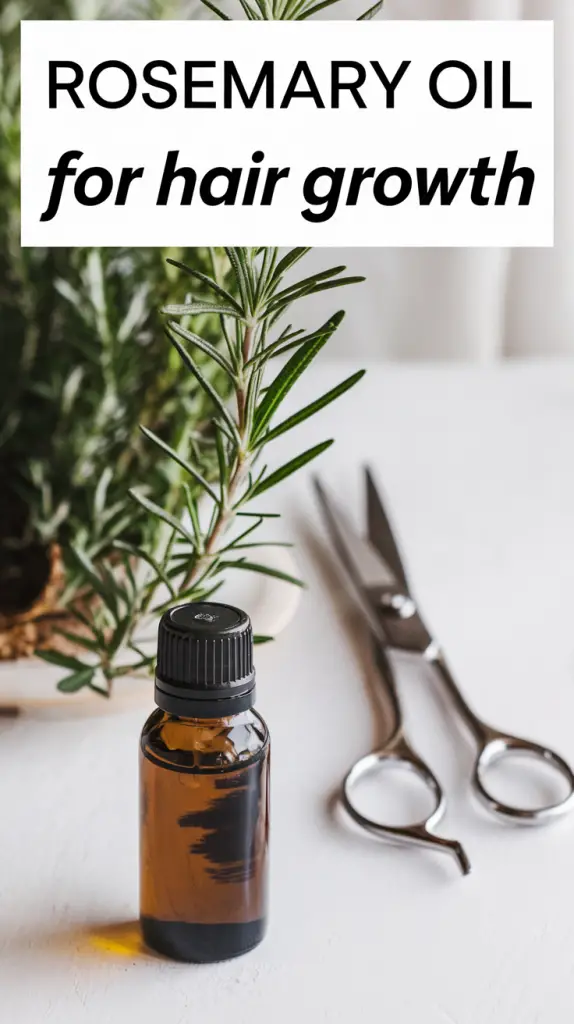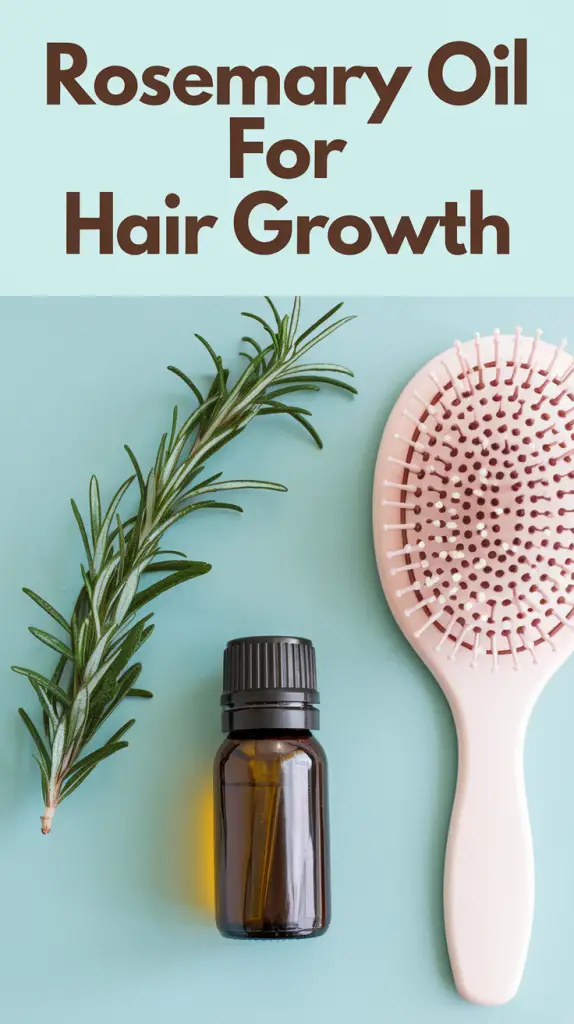How to Use Rosemary Oil for Hair Growth – A Complete Guide
If you’re looking for a good, practical way to help hair become more vibrant, rosemary oil may be the answer you’re looking for. As someone who’s into natural hair treatments, I can tell you that rosemary oil is backed by both traditional and scientific methods when it comes to hair health. I’ll walk you through everything you need to know about the best oils for hair growth, how they work, how to avoid any negative effects, and where to buy them for faster delivery.
Why Rosemary Oil is Effective for Hair Growth
Rosemary oil has been used as a remedy for centuries in different traditions. Recently, it’s become popular for hair health thanks to scientific research. There are a few main reasons why it’s so great:
- Improved blood flow: Rosemary oil helps the scalp get better blood circulation, which means it gets the nutrients it needs to grow hair. This helps to promote thick, strong hair.
- It also blocks DHT naturally. One of the main causes of androgenic alopecia in men and women is the hormone dihydrotestosterone (DHT). Rosemary oil, on the other hand, naturally inhibits DHT, reducing its negative impact on hair follicles and preventing further thinning and hair loss.
- It’s packed with antioxidants: The product gives your scalp a boost of antioxidants to help protect it better. It helps prevent peeling of the scalp and treats scalp inflammation that may cause hair loss.
- It’s got antimicrobial properties, too. It also protects your scalp by fighting off unhealthy bacteria and mushrooms. A healthy scalp is key for hair growth, and rosemary oil is great for tackling dandruff and scalp irritation.

How to Use Rosemary Oil for Hair Growth
Scalp Massage with Rosemary Oil
Rosemary oil works best when you use it in a scalp massage. It’s a pretty straightforward guide.
- Mix a little cornmeal rosemary oil with your regular wash oil, like Bobco or jojoba.
- Rub it into your scalp for about five to ten minutes, focusing on the areas where you’re losing hair.
- Don’t wash the oil out for at least 30 minutes, unless you’re planning to keep it on all night for a deeper treatment.
- Rinse with a gentle shampoo.
As a matter of fact, if you do this a few times a week, you can be sure you’ll stick to your dosing plan and get the most out of it.
Rosemary Oil in Shampoo or Conditioner
If you’re looking for a quick fix, try adding rosemary oil to your daily hair care routine. Mix it with your shampoo or conditioner for an extra boost.
- You can also add 3-5 drops of rosemary oil to your shampoo or conditioner bottle.
- When you’re rinsing your hair, apply the solution to your scalp for a few minutes before you rinse it off thoroughly.
This not only saves time but also makes it easy to use rosemary oil without having to go through other steps like actually applying the oil.
Rosemary Hair Rinse
As an alternative, a rosemary hair rinse is a great choice for those who prefer not to have oil on their heads.
- Just simmer the fresh rosemary sprigs in water for about 15 minutes.
- Let the water cool down a bit by itself.
- Once you’ve washed with just rosemary water, you can use the lather to rinse your hair. This will give your hair a lovely boost.
This simple rinse can be stored in the fridge for up to a week, and after each wash, it can be used to help address hair thinning.
The Benefits of Using Rosemary Oil Regularly
Using rosemary oil regularly offers a lot of advantages. Here’s a quick rundown of the different benefits you can enjoy by using rosemary oil consistently:
- Rosemary oil is great for your hair. It makes it grow stronger and helps it resist breakage.
- It also helps to reduce dandruff. The oil is great for fighting fungus, which is the main reason you’d use it to treat dandruff. It’s also good for soothing the scalp.
- Balanced Scalp Oils: The plant helps regulate sebum production, which keeps the scalp in balance and clears clogged pores caused by fatty substances.
Scientific Evidence Supporting Rosemary Oil
The studies have shown that rosemary oil has a big impact on hair growth. For example, a study from 2015 compared rosemary oil to minoxidil, a popular hair growth product. After six months, it was clear that those treated with rosemary oil had grown more hair than the group using minoxidil. This is solid proof that nature has the answer to hair thinning and loss.

Common Mistakes to Avoid When Using Rosemary Oil
Rosemary oil is undoubtedly a natural remedy, but as with anything in life, carelessness can easily lead to problems if you’re not careful. Let’s look at some of the common mistakes people make when they’re trying to incorporate the oil into their daily routine.
- If you use it undiluted, Just a heads-up: Don’t put rosemary on your scalp without mixing it with a carrier oil. Otherwise, you might get a skin irritation or allergy.
- It’s important to be consistent with high-level actions and exercises. If you don’t use rosemary oil regularly, it won’t be as effective. The same goes for when you apply it—you need to use it consistently.
- Patch tests are best ignored. The best way to make sure you don’t have any skin side effects is to test the oxygen in your skin before you do it all over. After all, it could cause irritation or an allergic reaction in patients. It’s really important to check.
- Pumpkin Seed Oil: This oil, which is a natural DHT blocker, may also help hair growth.
- Peppermint Oil: Peppermint oil is also a natural DHT blocker that helps hair growth by increasing blood flow to the scalp and hair follicles.
Alternatives to Rosemary Oil
If your skin is sensitive or you’re looking for natural alternatives, these other natural solutions might be right for you.
- Pumpkin Seed Oil: It’s also a natural DHT blocker, which helps your hair grow better.
- Peppermint Oil: Rosemary and peppermint oils have the same benefits when it comes to boosting blood flow to the scalp and promoting hair health.
Conclusion
Rosemary oil is a natural product that can be used to promote hair growth and improve scalp health. You can also use it on your scalp when you make your shampoo. You can even use it as a hair rinse. If you stick with this routine, you’ll see some great results. If you’re looking for a reliable and natural way to boost hair growth, rosemary is a great addition to your hair care routine.
FAQs
How long does it take to see results?
If you stick with it for about three to six months, you should start seeing some hair growth improvements.
Can I use rosemary oil every day?
Yes, though those with fine hair may prefer to use it just 1-2 times a week to avoid excess grease. People with thicker hair may be able to use it more than once a week.
Can I leave rosemary oil on overnight?
Absolutely. You can also get some extra nourishment by using rosemary oil on your scalp overnight. Just make sure to wash it away completely in the morning.
Is rosemary oil safe for all hair types?
Yes, rosemary oil is suitable for all hair types, but the way you use it (how often and how much) can differ depending on your hair type, like fine, thick, oily, or dry hair.

